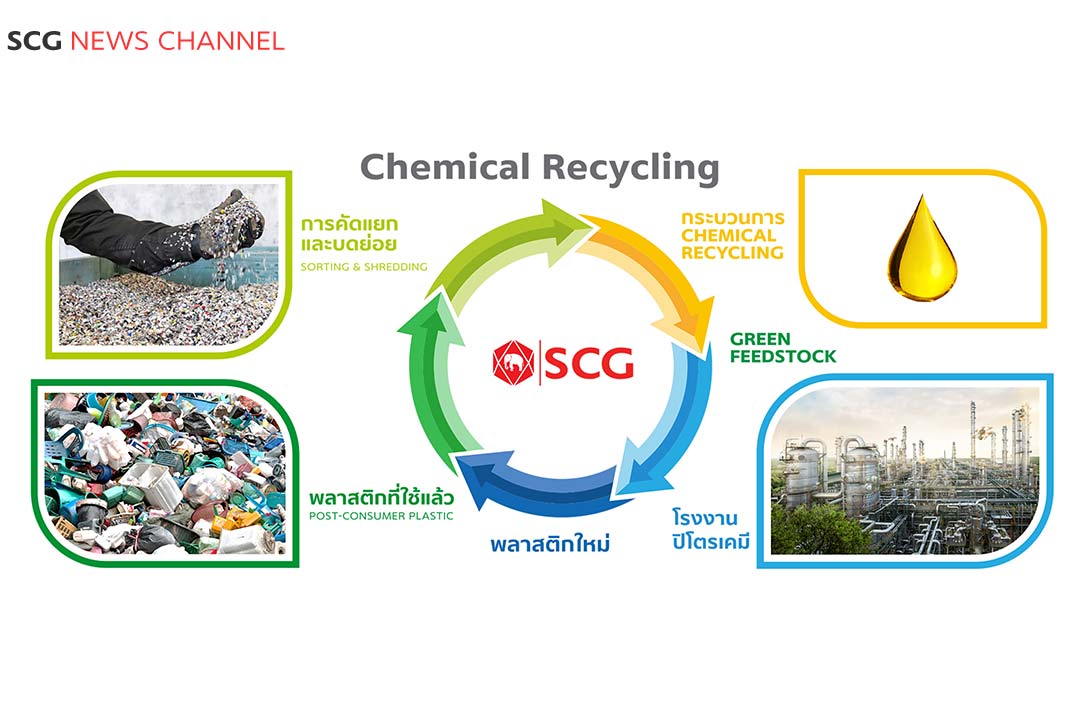The Chemicals Business, SCG, has unveiled its 2021 business strategy towards a “Chemical Business for Sustainability,” which include a target to deliver “net-zero” greenhouse gas emissions by 2050 and a roadmap highlighting four main areas to drive the circular economy. The company will also be offering a comprehensive range of innovations and technologies as well as products and services that serve as new alternatives for customers, brand owners, and eco-conscious consumers — a new business approach that the company believes, will answer the needs of the global market. The Chemicals Business, SCG, is ready to collaborate with organizations in every sector looking to apply the circular economy principles to their business.

Mr. Tanawong Areeratchakul, President of Chemicals Business, SCG, remarked on the company’s economic approaches to the circular economy, “The Chemicals Business, SCG, has been working continuously to advance a circular economy, focusing on the development of innovative plastic resins. The company has also been collaborating with domestic and international partners in its networks to promote resource efficiency and at-source management of post-consumer plastics to put them to good use, such as in recycled plastic roads or recycled lubricant plastic bottles.
For the year 2021, the Chemicals Business, SCG, has formulated a circular economy roadmap comprising four main areas as follows.
- Design for recyclability: The company will further develop solutions and innovative recyclable plastic resins while maintaining all their other properties. An example is the development of mono-material plastic resin for packaging, which allows packaging layers to be made of the same material to facilitate recycling.Furthermore, the company has developed SMXTM Technology, which not only imparts special properties to plastic resins but also allows products to be made with less material. Moreover, the technology also enables a greater proportion of recycled plastic content. Invented and developed by SCG’s R&D team, who works in collaboration with customers and brand owners to deliver products that best serve their needs
- Post-consumer recycled resin (PCR): Post-consumer recycled resin, which allows used plastics to remain in use and create further value, has garnered tremendous attention among plastic packaging users, especially world-class brand owners. The Chemicals Business, SCG, has developed high-quality PCR in collaboration with various business suppliers who are the world’s recycling experts, such as SUEZ, a world leader in smart and sustainable resource management.
- Chemical recycling: Thanks to technology and cutting-edge eco-friendly production, it will be possible to recycle used plastics into green naphtha as a raw material for petrochemical plants, in line with the circular economy principle of material circulation. The demonstration unit is being constructed and is expected to reach completion in early 2021.
- Development of bioplastics: Bioplastics are produced from agricultural raw materials, which help absorb greenhouse gases and thus diminish the impact of climate change. The company has joined hands with both domestic and international research and development networks to create innovative bioplastics that best answer users’ needs, such as the development of films for the food packaging industry.

“In addition to the four core initiatives aimed at advancing a circular economy, the Chemicals Business has developed digital platforms that facilitate the collection and reuse of used plastics, such as the web application KoomKah, which provides a data management service for waste banks to enhance their efficiency, and ReadyPlastic, trading platform for industrial scrap and recycled plastic pellets. In tandem, the company has been promoting at-source plastic waste separation, fostering the habit of “resource maximization, correct sorting, and proper disposal” at the household level, as well as developing lessons for school instruction in order to cultivate eco-consciousness in children and teach them proper waste management right from childhood,” concluded Tanawong.
 ดาวน์โหลดข่าว
ดาวน์โหลดข่าว